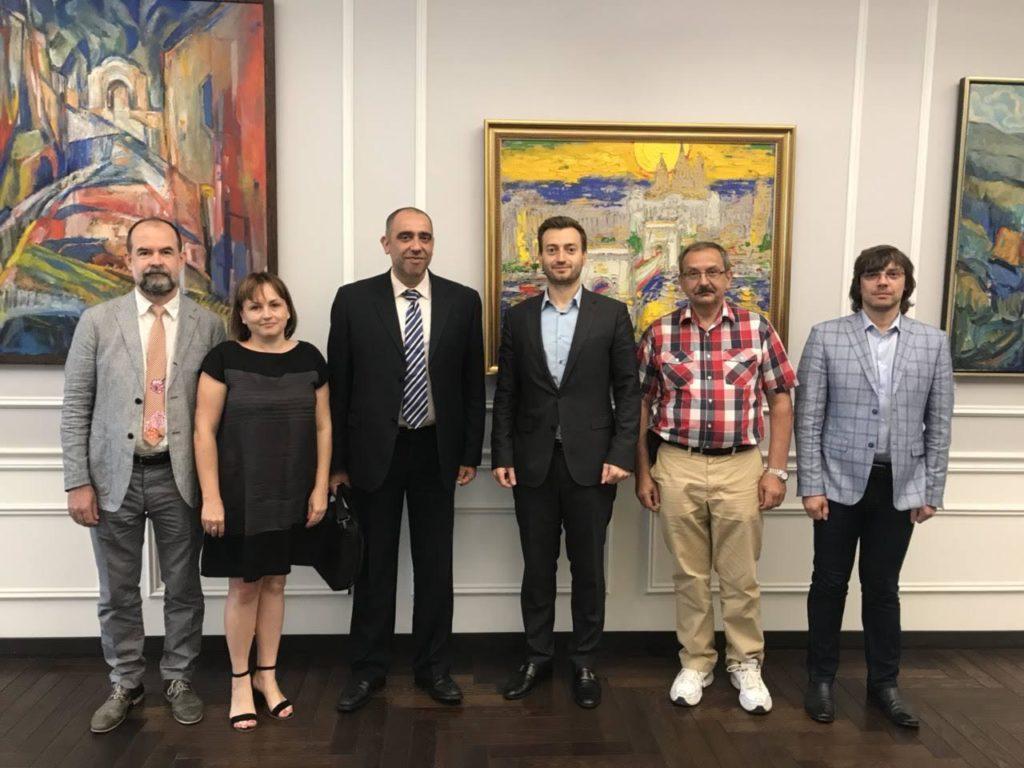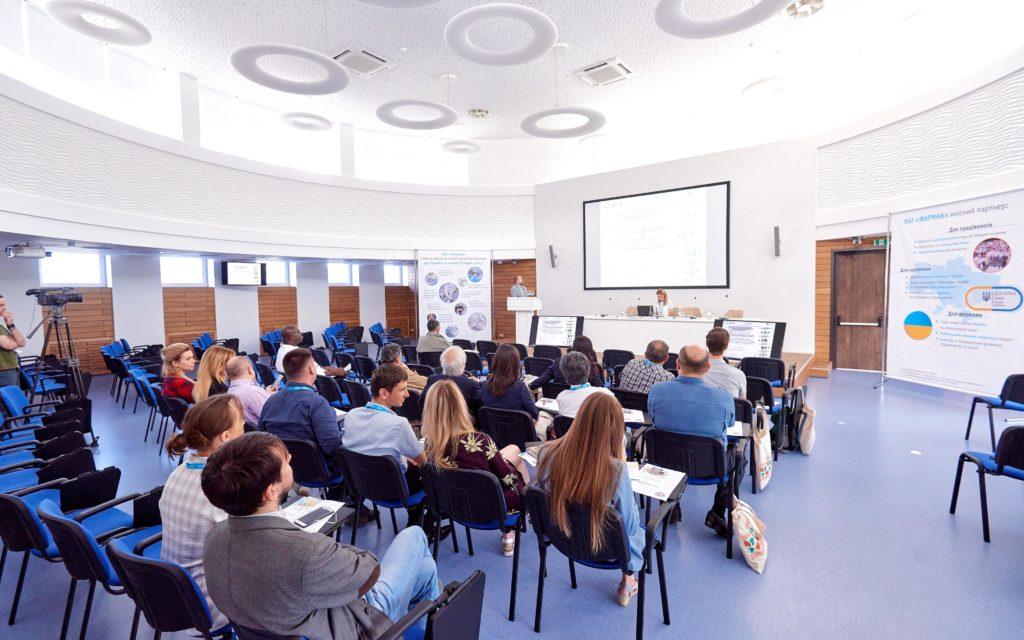JSC Farmak as part of two different consortia is a participant of two projects: VAHVISTUS and ORBIS, European Commission’s scientific grants program ‘Horizon 2020’ that combines and finances research and innovation in Research and Innovation Staff Exchange (RISE) in the EU.
The subject of the VAHVISTUS project is “Integrated development of “smart” nanostructures for adaptive delivery to target cells” (“advanced science” area). The project is aimed at exchanging experience and innovations to address issues of treatment of incurable tropical diseases. This event took place with participation of representatives and partners of the consortium, as well as a representative of the Research Executive Agency from the European Commission.
On 25 June, the first part of the Workshop took place at the Institute of Organic Chemistry of the National Academy of Sciences of Ukraine (5 Murmanska St., Kyiv). On 26 June, the second part of the Workshop was held at Farmak plant. During the Workshop, reports were presented by participants of the consortium from the University of Helsinki (Finland), the Institute of Polymers, Composites and Biomaterials, Pozzuoli (Naples, Italy) and partners from Ibn-Tofail University (Kenitra, Morocco) and the University of Florida (Gainesville, USA). Furthermore, a guest report from an invited lecturer from Sidi Mohamed Ben Abdellah University (Fes, Morocco) was rendered. From Farmak, speakers were Oleksiy Burmaka – Head of the International Regulation Sector, and Ilarion Omelchenko – Leading Specialist of the Pharmaceutical Technology Development Laboratory, Research and Development Department.
On 27 June, a Reporting Meeting for the interim period of implementation of the VAHVISTUS project was held with the participation of Mr. Sotirios Kyokas, representative of the European Commission from Brussels (Belgium). During the event, Farmak specialists, who have worked in international scientific institutions, reported on the work done for the year within the framework of the VAHVISTUS project.
The project participants could also share their general impressions and achievements in terms of practical skills acquired during work visits to the consortium members, where they could work on modern equipment, examine the latest technologies, because the RISE grant program, in addition to the main project objective, is primarily aimed at development and advanced training of specialists.

